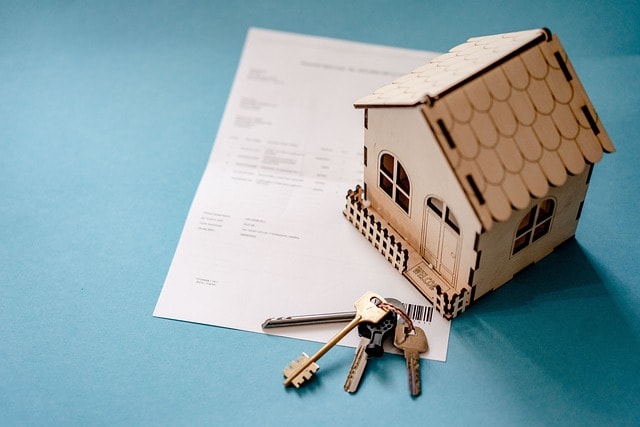A home equity loan is a type of loan specifically designed to borrow some money using your home as collateral. It will help you get a lump-sum amount and repay the loan in the determined period over a fixed interest rate.
A home equity loan helps you to determine the value of your home without the cost of selling your home. As you pay the installments of your mortgage and the value of your property increases with time, the share of the home you own also increases. By getting a home equity loan, you convert the owned home back into debt in return of cash.
Home equity loan is a well known financing option for homeowners looking forward to any home improvement plan. You are free to use your money wherever you want to use it. But it is recommended to reserve it for major expenses that build wealth.
As your home is reserved as a collateral for a home equity loan, if you fail to repay the home equity loan and interest rates, you should keep in mind that it is at risk of foreclosure of second mortgage on the home. If you are looking to get a home equity loan, here are some factors you should consider or you want to keep in mind.

- Est. APR = 9.95% - 14%
- Loan Amount = $150,000 - $3,000,000
- Minimum FICO Score: N/A
5
editorial team. We score based on factors
that are helpful for consumers, such as
how it affects credit scores, the rates and
fees charged, the customer experience,
and responsible lending practices.

- 24/7 Support
- Bridge & Rental Loans
- Equal Housing Opportunity
5
editorial team. We score based on factors
that are helpful for consumers, such as
how it affects credit scores, the rates and
fees charged, the customer experience,
and responsible lending practices.
- Check Your Eligibility
- Equal Housing Opportunity
5
editorial team. We score based on factors
that are helpful for consumers, such as
how it affects credit scores, the rates and
fees charged, the customer experience,
and responsible lending practices.

What is a home equity loan?
A home loan allows you to turn some of the apartments in your home into cash. Then afterwards, you receive this lump-sum amount that you pay back over a fixed period of time in the form of installments. This loan offers a benefit of fixed interest rate. The funds repayment time ranges from 5 years to 30 years depending upon the loan amount and it varies from lender to lender.
Most of the lenders ask you to have at least 20% share or equity or ownership in the home. While some of them will allow you to take equity line of credit to get 90% of your home as a loan. As per the rules and regulations of National Association Realtors, the homeowners who have experience and made an average down payment of 17% last year, are eligible for home equity loan with most of the lenders after they just closed first mortgage. The homeowners who are buying homes for the first time, may have to choose multiple lenders with higher CLTV.
Uses of Home Equity Loan
A home equity loan can be used for repair, renovation or financing any type of project to modify your home that adds to the value of the home. According to the data collected from the U.S. Census Bureau’s 2021 survey American Housing Survey shows that a project that is financed by an equity loan costs $11,240 on average. These reports reveal the fact that the kitchen seems to be more expensive as compared to cost to other home renovations done.
Homeowners can use all money they get from a home equity loan for anything they want. But it is not recommended for borrowers to use money they get from a home equity loan for personal or vacation expenses. Because these expenses don’t add value or the funds can’t be recouped.
How Much Can You Borrow With a Home Equity Loan?
A home equity loan more frequently allows you to borrow up to 80% to 90% of your home’s value. Also it minimizes what you have got by pledging your home. Some lenders can also allow you to borrow more than 90% or in some instances 100% of the total value of your home.
Requirements to Get Equity Loan
The requirements to qualify for an equity loan vary from lender to lender. Here is the precise list of the requirements most of the lenders have in common.
- Home equity or ownership of at least 15% to 20%.
- A credit score of 620 or higher.
- Debt-to-income ratio of 43% or lower.
In order to confirm the present market value of your home, your lender may also ask you for an appraisal to calculate the amount you’re eligible to borrow.

Are Home Equity Loans Good Idea?
Are you confused about whether getting a home equity loan is a good idea or not? It fully depends upon your financial conditions and your plans to do with the money. Using a home as collateral is a big risk, so it is highly recommended to compare the pros and cons of the equity loans before signing up for them.
Pros:
- Lower interest rate as compared to personal loans.
- Fixed rates make budgeting more predictable and easy to manage
- Interest is deductible in case you use a loan for renovations.
Cons:
- Less flexibility as compared to HELOC.
- If you sell the home before repaying the loan, the lent amount will be due on you.
- You may have to pay closing amounts to finalize securing a home equity loan.
Conclusions
A home equity loan is a valuable financial tool for homeowners looking to leverage the value of their property without selling it. By using your home as collateral, you can secure a lump-sum amount to be repaid over a fixed period at a fixed interest rate. This type of loan is particularly useful for funding home improvements, which can increase the value of your property.
However, it’s important to use the funds wisely, ideally for expenses and savings that build wealth. Remember, failing to repay the loan could result in foreclosure, so carefully consider the pros and cons before deciding.
How a Home Equity Loan Works
A home equity loan lets you borrow money by using your home as a promise to pay back. It’s like getting a big chunk of money all at once, and you agree to pay it back over time with a fixed interest rate. This means the amount you pay every month stays the same.
When you take out a home equity loan, the bank looks at how much your home is worth. They also check how much of the home you already own. This is called your home’s home equity line. You can usually borrow up to 80% of home equity lines or 90% of the value of your home.
Home equity loans are great if you need money for big expenses like fixing up your house or paying your taxes or off other debts. But remember, if you don’t pay back the loan, the bank can take your home. So, it’s important to make sure you can handle the monthly payments before you decide to borrow.
Home Equity Loans vs. HELOCs
When you need money, for a mortgage for example, you might think about a home equity loan or a home equity line of credit (HELOC). Both let you use your home’s value to get money, but they work differently.
A home equity loan gives you a lump sum of money with a fixed interest rate. This means you pay the same amount every month. It’s good if you know exactly how much money you need.
A full HELOC loan, on the other hand, works like a credit card. You can borrow money as you need it, up to a certain limit. The interest rate can change, so your monthly payment might go up or down. This is better if you need money over time, like for ongoing home repairs.
Both options have their good and bad points, so think about what works best for you and your plans.
Fixed-Rate Loan Option
With a fixed-rate loan, for example, you know what your monthly payments will be because the interest rate stays the same. This makes it easier to plan your budget. Fixed-rate loans are good if you want to borrow money for a big project and like knowing exactly how much you’ll pay each month.
Why Don’t I See a Payment Amount?
Sometimes, when you’re looking at home equity loans first mortgage amount, you might not see the exact payment amount right away. This is because the payment depends on a range of things like how much you borrow, the interest rate, and how long you take to repay the loan.
To find out your payment, you can use a calculator online or ask the borrower or bank for help. They can have calculator to show you what your monthly payment would be based on different loan amounts and terms.

- Est. APR = 9.95% - 14%
- Loan Amount = $150,000 - $3,000,000
- Minimum FICO Score: N/A
5
editorial team. We score based on factors
that are helpful for consumers, such as
how it affects credit scores, the rates and
fees charged, the customer experience,
and responsible lending practices.

- 24/7 Support
- Bridge & Rental Loans
- Equal Housing Opportunity
5
editorial team. We score based on factors
that are helpful for consumers, such as
how it affects credit scores, the rates and
fees charged, the customer experience,
and responsible lending practices.
- Check Your Eligibility
- Equal Housing Opportunity
5
editorial team. We score based on factors
that are helpful for consumers, such as
how it affects credit scores, the rates and
fees charged, the customer experience,
and responsible lending practices.
For Automatic Monthly Payments
Setting up automatic monthly payments on credit, can be a smart move. It helps make sure you never miss a payment, which can keep your credit score in good shape. Plus, some banks might give you a discount on your interest rate if you set up automatic payments.
Home Equity Basics
Understanding home equity is important. It’s the part of your home that you own. As you pay off your mortgage or as your home’s value goes up, your equity increases. You can use this equity to get a loan or line of credit if you need money for big expenses.
What is the Downside to a Home Equity Loan?
While home equity loans can be advantageous, they also come with some potential drawbacks. One major downside is the risk of foreclosure. Since your home is used as a loan term and collateral, failing to make timely payments could lead to losing your property.
Additionally, home equity loans add to your existing debt, which could impact your financial stability. The closing costs and fees associated with closing costs along with these loans can also be significant, reducing the loan term overall benefit.
Furthermore, if home values decline, you might end up owing more than your home is worth, and interest rates which can be problematic if you need to sell or refinance. It’s crucial to weigh these risks against the benefits before committing to a home equity loan.

 Read More
Read More 




